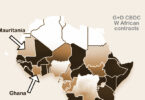Today Riksbank, the Swedish central bank, announced a trial for an e-krona targeted at the general public. The solution is developed by Accenture using the Corda enterprise blockchain.
The bank was keen to emphasize that no decision has been made to proceed with a central bank digital currency (CBDC), and the project is intended as a learning experience.
Accenture won the contract to explore the e-krona in December last year. The initial test will last through to February 2021.
How an e-krona might impact the Swedish economy depends in part on the design of the currency. Hence the need for the pilot project. Test users will store e-krona in a digital wallet, enabling them to make and receive payments. Additionally, there will be solutions for smartwatches and cards. The possibility of using the currency offline may be explored.
Before a wallet can be used, it has to be activated by a participant connected to the distributed ledger technology (DLT) network, mainly banks. Once activated the e-kronor can be used for retail payments, person to person payments, or transfers to and from bank accounts.
The solution will involve simulating the current financial infrastructure and settlement systems.
Banks will have to swap deposits in the central payment system RIX in exchange for e-krona. Direct participants that operate nodes will need to have access to RIX, but the central bank also allows for indirect participants. The central bank controls the private DLT network and is the only one that can decide who can add a node.
However, RIX is only used for the issue and redemption of the currency, not for transactions that will be done separately. Riksbank noted that because the DLT network is separate from existing payment systems, it could offer additional robustness if the primary network failed.
The Swedish central bank is keen to explore a CBDC because of the declining cash usage. That’s also one of the drivers behind China’s digital currency DC/EP. But other central banks such as the ECB and the Federal Reserve have noted that they don’t have the same issues.
MORI and OMFIF published a 13,000 person survey of consumer attitudes towards CBDC and other digital currencies. It found a significant difference in appetite between emerging markets where citizens were keen, versus developed economies where consumers were much more cautious.







